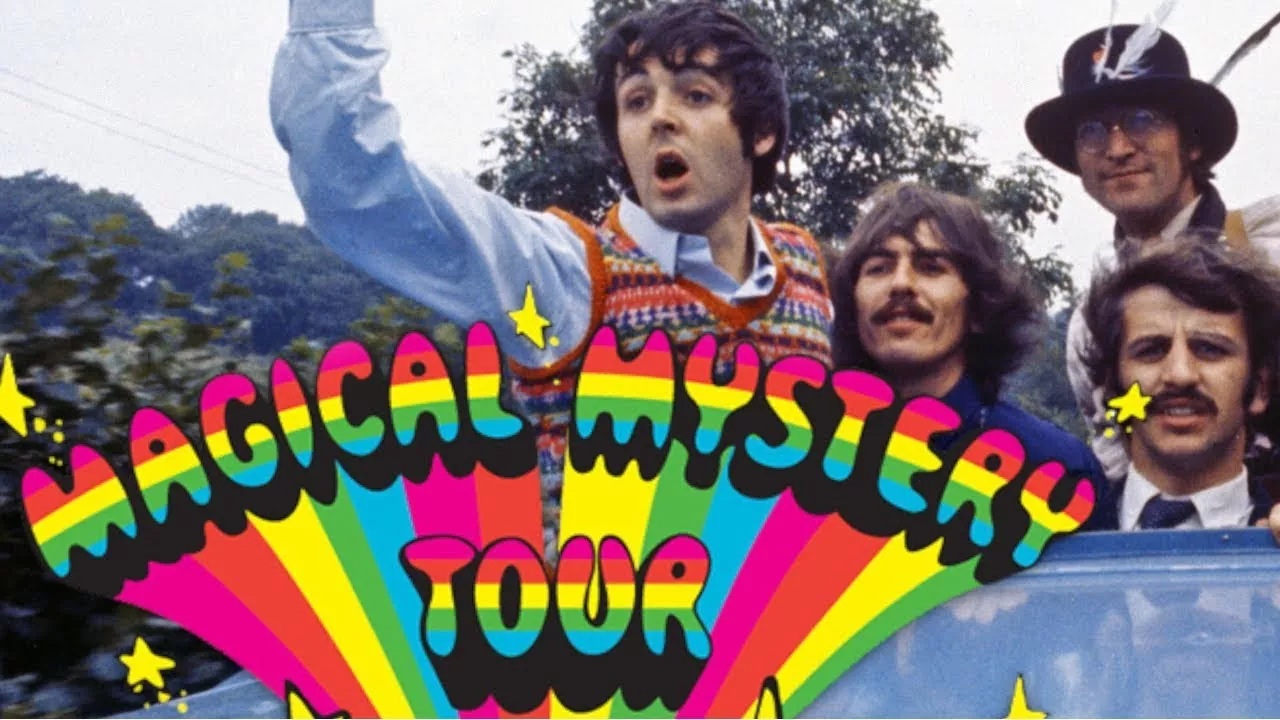During The Ed Sullivan Show, Ringo Starr belted out the lyrics “They’re gonna put me in the movies” while covering Buck Owens’ hit “Act Naturally” with the Beatles. The band performed songs from their newest movie, Help!, during their 1965 appearance on the show. Directed by Richard Lester, Help! was a parody of James Bond movies and spy mania, following in the footsteps of A Hard Day’s Night (1964), the best jukebox movie ever made. In both films, the rhythm took center stage, which came naturally.
Before the live performance on national television, Starr introduced himself as “all nervous and out of tune” to the audience. However, he continued to smile embarrassedly without missing a beat during his dynamic country swing. As a locally famous beat-keeper in Liverpool before joining the Beatles, Starr was a natural performer with a unique rhythm pattern that set him apart from other drummers. His beats had personality, and he barely needed to rehearse for his first big break in a featured scene in a feature film.
While filming the “deserter” scene in A Hard Day’s Night, Starr was hungover. In the scene, he abandons the band before the final run-through to throw rocks into the River Thames and dodge soccer balls from young actor David Jansson, who also plays a deserter from school. Although the script was evenly split between all the Beatles, Paul McCartney’s solo scene was cut. Starr’s big scene became the story’s driving force, as George Harrison and John Lennon provided comical asides during their mistaken identity sequences.
Starr was also the lead in Help! (1965), even though he did not speak the part. He also steered Yellow Submarine (1968) and was the director of photography for Magical Mystery Tour (1967), where each Beatle conducted individual segments. The film was a psychedelic road trip inspired by Ken Kesey’s Merry Pranksters and boasted experimental extravagance, perfect for true cinematic innovation, lauded by directors such as David Lynch. For a scene accompanying “Blue Jay Way,” Starr projected filmed clips onto Harrison’s face, creating ethereal feline double images.
“I had all the crazy lenses, all the prism lenses, and I was making slides,” Starr stated in Michael Seth Starr’s Ringo: With a Little Help. “So, I knew that stuff.”
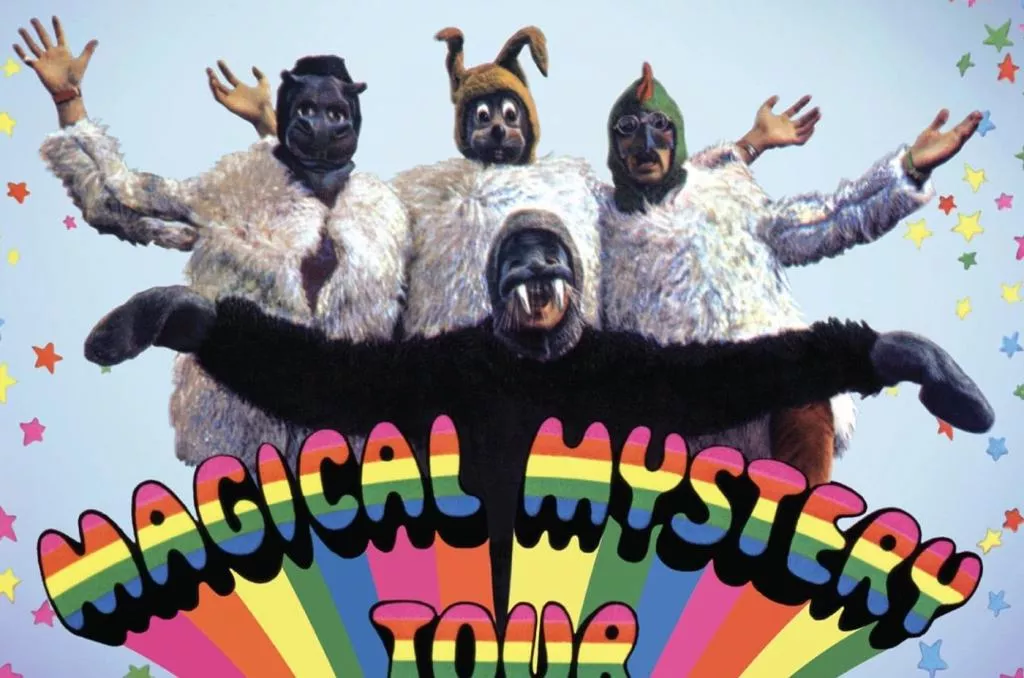
Ringo, the famed drummer of The Beatles, was not just a musician, but a talented photographer and filmmaker as well. He used the first money he earned from the band to buy cameras and pursue his passion for photography. Ringo even released a limited-edition book called “Photograph” and had a hit song about snapshots.
He later went on to direct the 1972 documentary feature, “Born to Boogie,” which followed the band T-Rex and featured a young Elton John. Ringo’s directorial style showcased a playful and free-spirited approach, much like his acting roles.
In fact, Ringo’s early acting roles in films like “A Hard Day’s Night” and “Help!” were best viewed through his emotionally honest and comedic performances. He went on to act in more daring roles, such as Emmanuel in the 1968 film “Candy.” Although the cut version of the film was messy, the full two-hour film, with a screenplay by Buck Henry, was a satiric masterpiece.
Ringo’s passion for film and art led him to work with notable stars like Marlon Brando and Richard Burton. His willingness to take on unconventional roles and experiment with different forms of storytelling is a testament to his creativity and versatility as an artist.
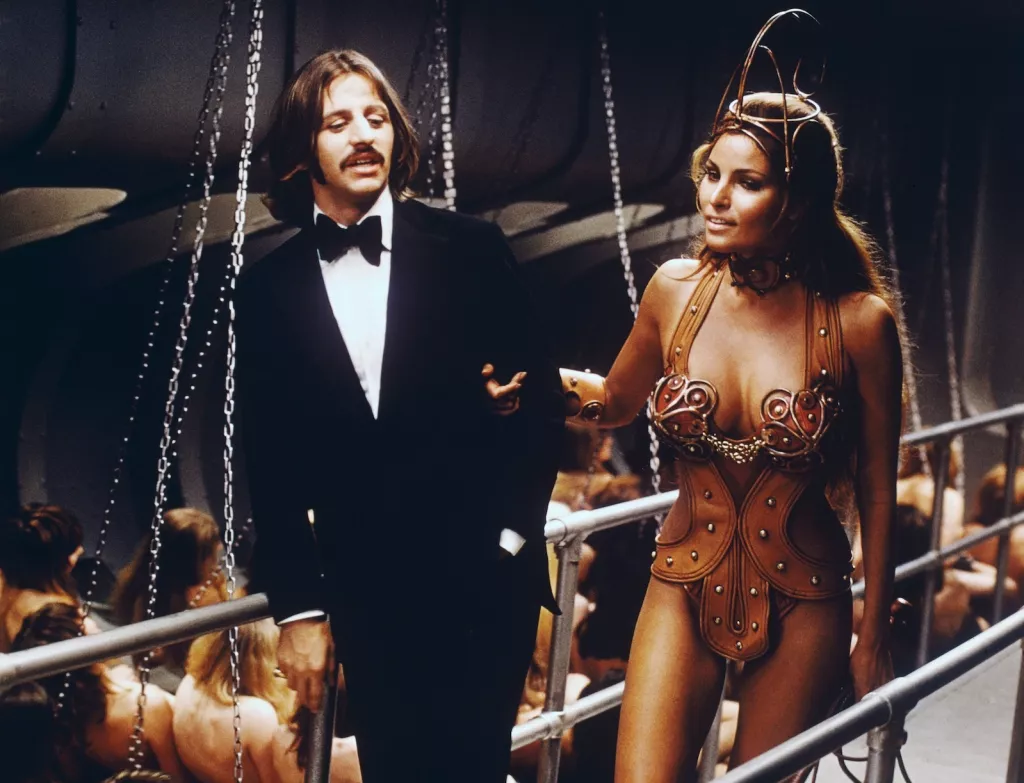
During the opening of The Magic Christian (1969), an absurdist comedy that sharply critiques capitalism, the Welsh rock band Badfinger sings, “If you want it, here it is, come and get it.” This particular song was penned by McCartney, and Lennon was initially considered for the lead role of Youngman Grand, a homeless wanderer who transforms into a wealthy man, but Ringo ultimately landed the part of the laid-back facilitator, perfectly embodying the cynical mischief of his generation. Peter Sellers’ character, Sir Guy Grand, carries the bulk of the narrative, taking in the vagrant and espousing the belief that “everyone has their price.”
Director Joseph McGrath populated The Magic Christian with an assortment of eccentric celebrities who wouldn’t break the bank. Christopher Lee makes a brief appearance as a vampire, while Raquel Welch delivers whip-smart lines as an S&M priestess. Yul Brynner steals the show as an outrageous transvestite cabaret singer, and Monty Python’s John Cleese plays a snooty Sotheby’s auction director. Graham Chapman also co-wrote an early version of the script and appears in the rowing scene.
Ringo Starr and singer Lulu made a fleeting appearance on a 1972 episode of Monty Python’s Flying Circus, introduced by Michael Palin’s tramp as the credits began to roll. In 1974, Starr collaborated with Chapman and Douglas Adams, author of The Hitchhiker’s Guide to the Galaxy, on a science-fiction comedy script to coincide with Starr’s album Goodnight Vienna. The hour-long TV special, featuring numerous members of the Python troupe and culminating in the accidental destruction of the universe, was rejected by all the major US networks. However, the script is available to read in OJRIL: The Completely Incomplete Graham Chapman (1999).
George Harrison founded the production company HandMade Films to produce Monty Python and the Holy Grail, and later teamed up with both the Pythons and the original cast of Saturday Night Live for The Rutles: All You Need Is Cash (1978), a mockumentary that skewers the Beatles’ history. Harrison even makes a cameo at the beginning of Starr’s 1978 NBC special, Ringo, holding a mock press conference that ties the two projects together. In the special, Starr takes on the dual role of the prince and the pauper, demonstrating his talent for satirical send-ups of rock stardom.
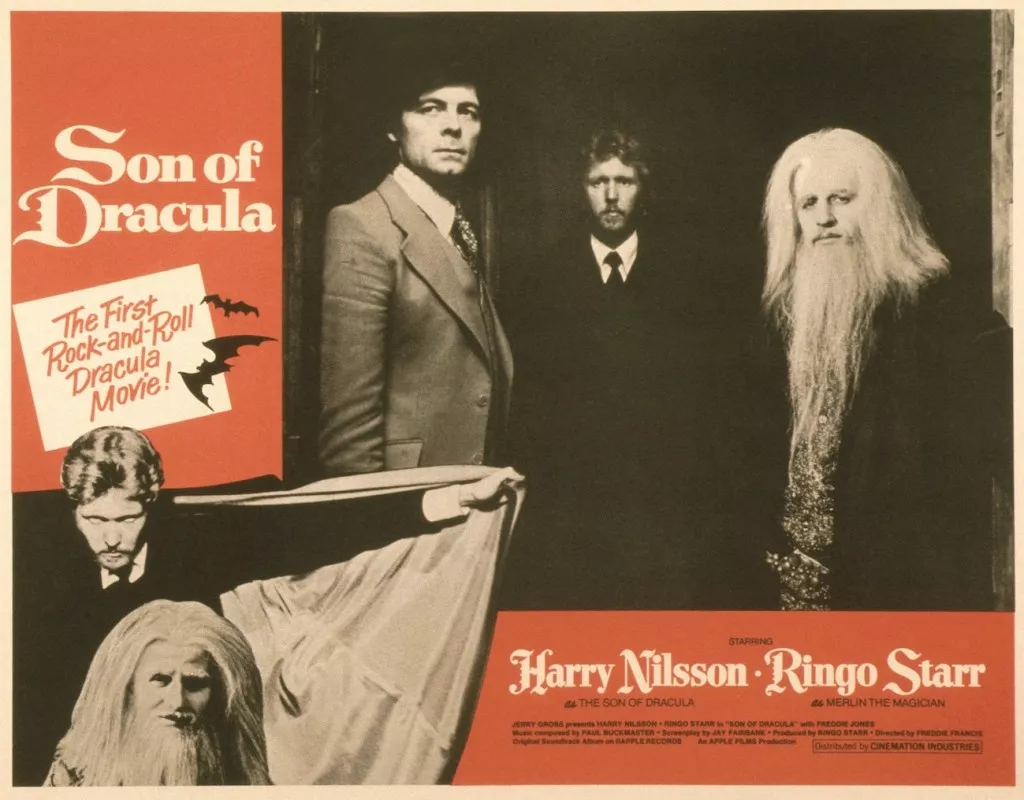
200 Motels, co-directed by Tony Palmer and written by Frank Zappa, premiered at the Plaza Theatre in New York City on Oct. 29, 1971. However, the movie was met with confusion from critics who couldn’t understand the plot, dance to the music, or handle the frenetic light show. Despite this, the handmade movie broke new technological grounds, as it was the first feature film shot entirely on video and edited using every special effect available.
Ringo Starr played Larry the Dwarf, an evil version of Zappa, and captured his mannerisms with a lot of energy. Ringo’s next film, Son of Dracula, directed by Freddie Francis, starred Harry Nilsson, Peter Frampton, Klaus Voormann, and Leon Russell. The film utilized the sets of Hammer Horror and featured musical performances taking up a significant portion of the screen time. Count Downe, played by Nilsson, is more brooding than frightening, wanting to give up his eternal powers and bloodlust for a chance at true love. Ringo’s Merlin has the means to perform the transformation, and he brings wise optimism and jaded menace to his ancient wizard.
Starr enjoyed making movies for fun, and Son of Dracula works best as an allegory to the nighttime escapades of rock gods between takes. It was an outgrowth of the Hollywood Vampires, a group of musicians making noise in LA, including Lennon, Alice Cooper, and a rotating roster of rock’s nocturnal session players.
Ringo’s work with Nilsson also yielded a children’s classic, The Point. Dustin Hoffman initially voiced the father of the pointless son living in a pointed community, but Starr later rerecorded the role for further airings, VHS and DVD releases, bringing a reassuring emotional center to a thought-provoking burst through the logic of natural order.
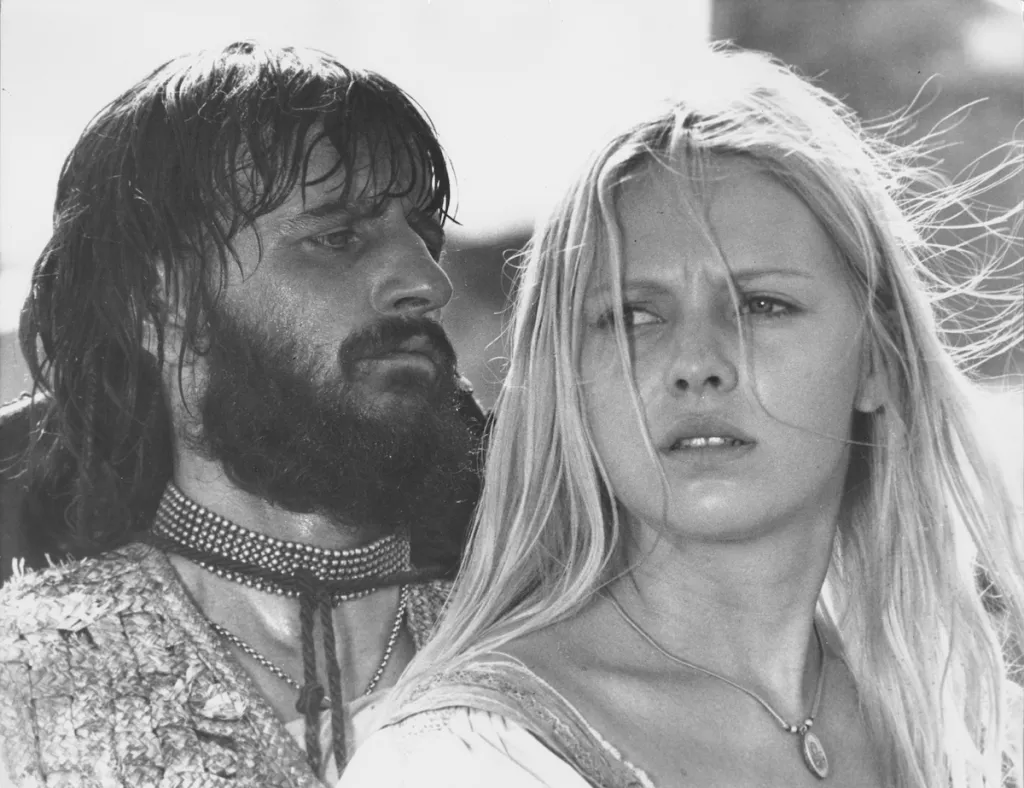
Tony Anthony stars in Ferdinando Baldi’s 1971 Spaghetti Western Blindman as Ciego, a sightless gunslinger hired to escort mail-order brides to miners. The film is characterized by its improvisational and relaxed style, reminiscent of a Sam Peckinpaw shoot-em-up. The villain Candy, played by Michael J. Pollard, gives an enthusiastically sadistic performance, shooting off the head of a snake and torturing the hero with ingeniously back-breaking rope drops. As much as Blindman is a western adventure, Pollard’s nuanced portrayal of the physically impetuous head of the gang of desperate and libidinous thieves gives the film a deeper interpretation.
In Ringo: With a Little Help, musician and actor David Essex expresses his initial uncertainty about Ringo Starr’s acting abilities, given that he was not known for the zany and madcap films that the Beatles had made. However, Essex quickly realized that Starr was a natural and truthful actor. That’ll Be the Day (1973), loosely based on Lennon, is considered one of the best period films of 1970s British cinema. Essex plays Jim MacLaine, a roustabout who discovers music.
In the film, Starr plays Mike, a teddy boy who works at a holiday camp during the early days of rock and roll. He has a gift of gab, a bird in each hand, and a weakness for bumper cars. Starr’s completely natural performance earned acclaim from critics and fans alike. He skipped the sequel Stardust (1974), but reprised his role as the drummer in Essex’s band in Moon.
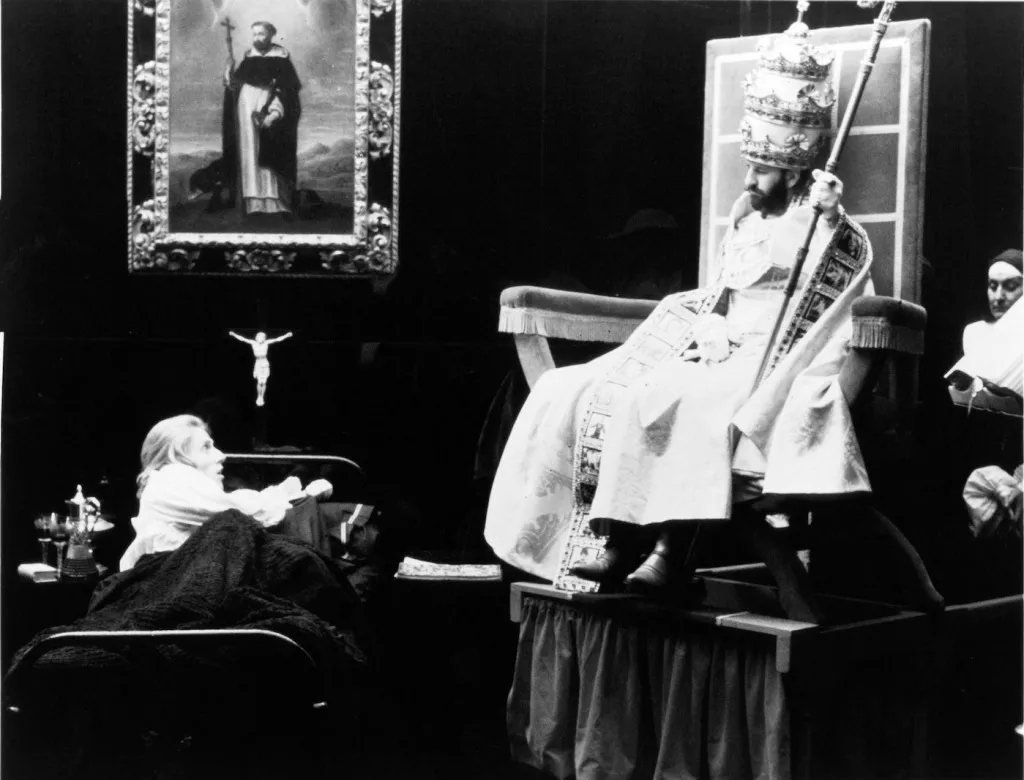
In Ferdinando Baldi’s 1971 Spaghetti Western Blindman, Tony Anthony stars as Ciego, a blind gunman hired to escort mail-order brides to miners. With a relaxed and improvisational tone, Blindman is as gritty as a Sam Peckinpaw shoot-em-up. Starr gives a sadistically enthusiastic performance as Candy, the villainous bandito who shoots off the head of a snake, knifes an innocent old man, and ingeniously tortures the hero with back-breaking rope drops. Despite its western adventure feel, Starr delivers a nuanced interpretation of the physically impetuous leader of a gang of desperate and libidinous thieves.
According to musician and actor David Essex in Ringo: With a Little Help, Ringo was initially unsure of how well Ringo could act since it wasn’t similar to the Beatles’ zany, madcap films. However, Ringo proved to be a natural and truthful actor in That’ll Be the Day (1973), one of the best period films of 1970s British cinema. Essex plays Jim MacLaine, a roustabout who discovers music, loosely based on Lennon. Ringo plays Mike, a teddy boy with a talent for charming words, birds in each hand, and a weakness for bumper cars. He dances well, as long as the band on stage is steady, but his disappointment is visible when they’re not. His natural performance garnered acclaim from both fans and critics. While Ringo skipped the sequel Stardust (1974), he managed to contain his manic energy to reprise his role as the drummer in Essex’s band for the film Moon.
In Lisztomania (1975), director Ken Russell creates a comedic exploration of the many loves of Hungarian Romantic composer Franz Liszt. Ringo plays the Pope, whose papal throne penetrates Liszt’s bedroom while he’s caught in the act. Daltrey’s Liszt protests that he was forced to have carnal relations with a woman at gunpoint, and Ringo’s God’s representative on Earth responds with other blasphemous realities. Although Yes keyboardist Rick Wakeman contributed to the soundtrack, and also had a cameo, Liszt’s work was sadly underused. The film is chaotic and anarchic, enjoyable for fans of counterculture excess, and begins with a carnal arpeggio.
In Sextette, Mae West breaks the last remaining cinematic sexual taboo by playing a sexually empowered older woman as Marlo Manners, at the age of 89. Starr plays West’s fourth husband to Timothy Dalton’s sixth husband, in this film that puts the screw in screwball comedies. Ringo’s theatrical take on the eccentric, petty-thieving European film director character Laslo Karolny would have worked seamlessly in a vintage black and white light feature. The film is structured like an old-fashioned Hollywood romp, with appearances from George Raft, Alice Cooper, and Dom DeLuise.
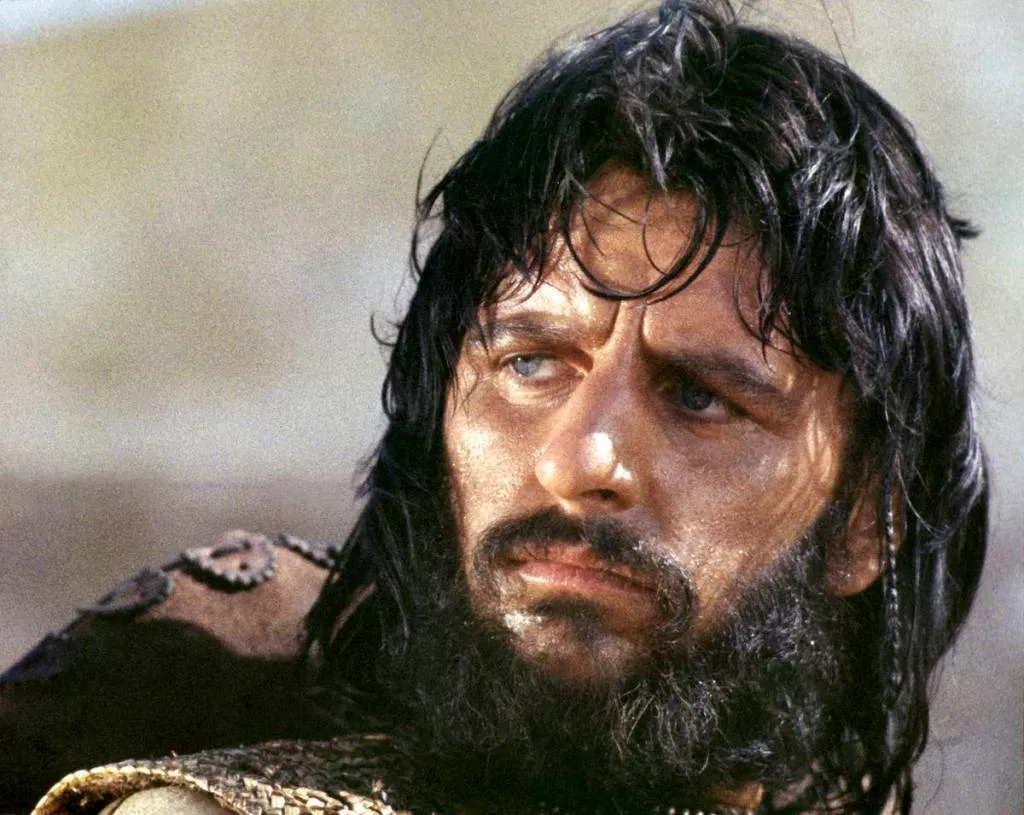
Taking place in a prehistoric era known as “One Zillion B.C.” and coinciding with John Lennon’s birthday on October 9th, Caveman (1981) may appear outdated. However, it remains a timeless slapstick comedy suitable for all ages and particularly enjoyed by those under the influence. Written and directed by Carl Gottlieb, the film is nearly silent with much of the dialogue consisting of grunts and groans. The stop-motion effects, created by Jim Danforth, who previously designed creatures for the 1974 softcore sci-fi spoof Flesh Gordon, are impressive.
Ringo Starr portrays Atouk, an early human who sets out to win the affection of alpha female Lana, played by Barbara Bach of The Spy Who Loved Me. Shortly after their work together in Caveman, the pair reunited as trendy trans-Atlantic fashion designers in NBC’s Princess Daisy (1983), based on Judith Krantz’s novel. Ringo eventually decreased his onscreen appearances around the time he starred in Paul McCartney’s Give My Regards to Broad Street (1984), stating that he recognized his primary calling was as a musician.
Despite this, Ringo remained popular among young audiences. The Beatles’ Saturday morning cartoon series ran on ABC from 1965 to 1967, and it continued to air in weekday syndication until 1969, causing children to be tardy for school. New generations continue to enjoy discovering Yellow Submarine and The Point, as well as Ringo’s roles as narrator and ultimately Mr. Conductor in Thomas the Tank Engine and Friends (1984-86) and Shining Time Station (1989).
Ringo also appeared in a diverse array of films and television shows, ranging from major flops to groundbreaking independent films, ribald sexual comedies, and classics suitable for all ages. Although his acting roles may not have always been the most suitable, he brought his unique personality and charm to every performance, much like his musical beats and fills that energize the rhythm with pauses. Ringo Starr’s acting career, like his music, is a reflection of his individuality.
